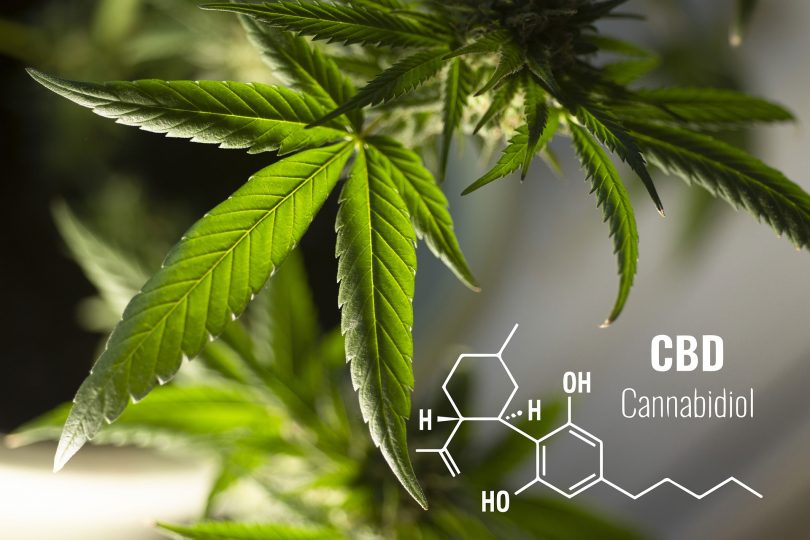Alleviating anxiety doesn’t necessarily require the use of pharmaceuticals. For those seeking a more natural treatment method cannabis can help to calm anxiousness. More specifically, the non-psychoactive cannabinoid cannabidiol (CBD) has been linked to reduced anxiety, but how exactly does it work?
An estimated 31 percent of American adults have experienced an anxiety disorder at some point in their lives. And while there are therapeutics available to help alleviate anxiety, CBD may be a viable alternative.
How Does CBD Work to Reduce Anxiety?
Studies have shown CBD’s therapeutic effect on a wide range of medical issues, including anxiety and stress. But how does the compound achieve this? Researchers suggest that CBD interacts with the receptors of the body’s endocannabinoid system. [1] This complex biological system is tasked with regulating important bodily functions, including body temperature, appetite, sleep, fluid balance and mood to maintain an overall state of homeostasis. When the body’s endocannabinoid system is off-balance any number of issues can arise, which is why maintaining the body’s balance (homeostasis) is so important.
More specifically, it’s the CB1 and CB2 receptors of the endocannabinoid system that CBD interacts with, without directly binding to them. CBD specifically activates transient receptor potential vanilloid 1 (TRPV1 receptors), which may desensitize these receptors and lead to analgesic effects. [2]
CBD’s involvement in the alleviation of anxiety also stems from its interaction with 5-HT1A receptors, a subtype of serotonin receptors. [3] Serotonin has been shown to improve mood and boost feelings of happiness and well-being, and low levels of serotonin can lead to feelings of anxiety and depression. Many anti-anxiety medications work to increase serotonin levels to counteract feelings of anxiety.
Reduced Anxiety Without the ‘High’
CBD’s effects on the mood and its ability to potentially reduce feelings of anxiety do not come at the expense of one’s state of mind. Unlike tetrahydrocannabinol (THC) — the compound in cannabis that induces a ‘high’ — CBD does not cause psychoactive or mind-altering effects.
While THC binds directly with CB1 and CB2 receptors, CBD simply interacts with them. Anyone looking for a natural way to calm their anxiety without any psychoactive effects may find CBD helpful. That said, some CBD products are derived from cannabis with high THC levels. Patients with anxiety may want to ensure that the CBD used is derived from strains with low levels of THC. Here’s some advice on how to choose the best and safest CBD oil for you.
Image source: Erin_Hinterland via Pixabay
References:
1- Lu, H.C. & Mackie, K., “An introduction to the endogenous cannabinoid system”, Biol Psychiatry, April 2016; Vol. 79(7): 516–525.
2- Costa, B., et al, “Vanilloid TRPV1 receptor mediates the antihyperalgesic effect of the nonpsychoactive cannabinoid, cannabidiol, in a rat model of acute inflammation”, Br J Pharmacol., September 2004; Vol. 143(2): 247–250.
3- Resstel, L.B.M., et al, “5-HT1A receptors are involved in the cannabidiol-induced attenuation of behavioural and cardiovascular responses to acute restraint stress in rats”, Br J Pharmacol., January 2009; Vol. 156(1): 181–188.










